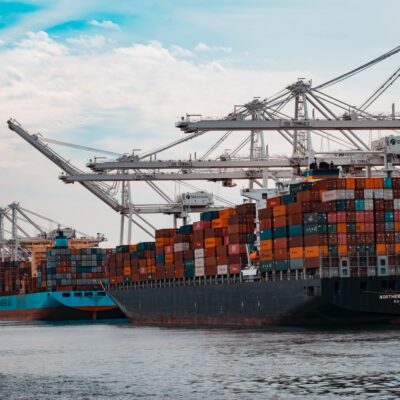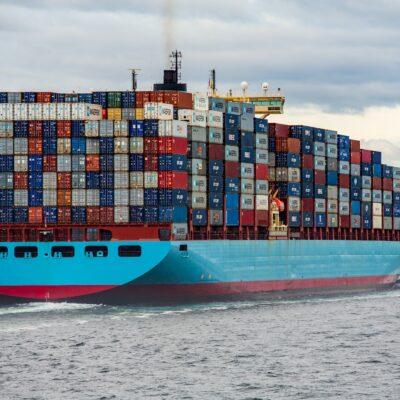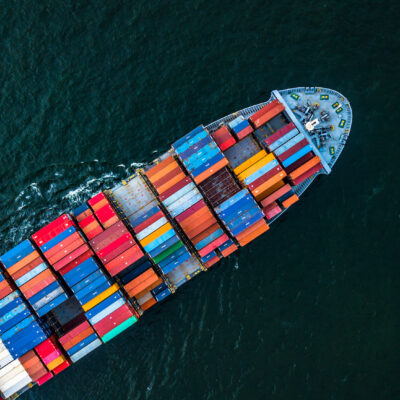

Balance trade by requiring importers to purchase credits from exporters.
RECOMMENDED READING
What’s the Problem?
America imports massively more than it exports, leaving us deeply indebted to our trading partners.
Rather than exchange American goods for foreign goods, we import on credit, sending back IOUs and ownership of our economy, which future generations will pay for.
In the process, we allow the erosion of American industry and innovation, the decline of manufacturing employment, and the collapse of communities.
Mortgaging Our Future
Economists have long promoted the idea that goods should be made wherever is cheapest and that trade deficits are benign and self-correcting. They were wrong. Thirty years of escalating trade deficits have led to more than $13 trillion of trade debt. As a result, production jobs in manufacturing have declined by 35%, tearing the social fabric in countless communities. With industrial decline has come a collapse in domestic investment and a shocking surge in “deaths of despair” concentrated among middle-aged Americans without college degrees.
Some economists argue that foreigners buying up American assets instead of goods is a positive: “Investment in America.” If foreign capital were used to enhance our productive capacity, it might be a fair trade—but that is not the case. In 2020, 96% of Foreign Direct Investment went to acquisitions rather than expansions or new enterprises. Foreigners are simply buying up our debt, equities, and real estate, laying claim to the nation’s future prosperity.
What’s the Solution?
Policymakers have several options to bring American trade into balance. One is for Congress to create a system of Import Certificates (“ICs”), which American firms must acquire before importing foreign goods. ICs would be created when exporters sell goods abroad and could be sold from exporters to importers. This system, proposed by Warren Buffet, would create a market in ICs that implicitly subsidizes exports and taxes imports at the level necessary to bring them into balance.
Legislation should direct the Department of Commerce to:
- Issue ICs to exporters equal to the total value of their exports
- Facilitate creation of a market in ICs
- Require importers to remit (to the Department) ICs equal to a share of the total value of their imports, rising to 100% within a decade
Using Markets to Balance Trade
This is a market-based program that guarantees balanced trade. Imports can occur only in proportion to exports, with that ratio eventually settling at 1:1. When market prices do not lead naturally to balanced trade, exporters would see increased demand for their ICs, encouraging more investment in export capacity.
This approach promotes efficiency and competition. Because certificates are sold on an open market, they will flow to the importers willing to pay the most for them. This ensures that more critical imports and those hardest to replace with domestic production are prioritized, and that American exports retain a competitive edge.
Frequently Raised Objections
“These certificates are corporate welfare for exporters.”
Exports are in the national interest, support domestic investment and employment, and keep America at the technological cutting edge. The IC system rewards exporters when America is struggling in the international market and reduces the subsidy to zero as trade comes into balance.
“They will prop up uncompetitive industries.”
The system creates no monopolies and provides no special favors to particular firms; all of today’s market forces will remain in effect. American producers will still be competing against each other to innovate and drive down cost, and they will be competing on fairer footing against foreign firms that often receive large subsidies themselves.
“This approach will start a trade war.”
America is already in a trade war—that’s why our trade deficit ballooned in the first place. The only question is whether we are going to defend our own interests while we still have the economic power to do so.
Further Reading
“The Balancing Act.” American Compass, 2022. An in-depth exploration of globalization: how it works, its shortcomings, and potential solutions.
Warren Buffett. “Here’s How I Would Solve the Trade Problem.” Fortune, 2016. A policy proposal from Warren Buffett on how Import Certificates can balance trade deficits.
“Robert Lighthizer on the Need for Tariffs to Reduce America’s Trade Deficit.” The Economist, 2021. A policy overview from former U.S. Trade Representative Robert Lighthizer on ways to address the trade deficit, including through Import Certificates.
Recommended Reading
Policy Brief: The Market Access Charge
Make American goods more attractive to foreigners than American assets
Policy Brief: The Global Tariff
Levy a tariff on all imports that rises until trade is balanced
Policy Brief: End “Permanent Normal Trade Relations” with China
Reclaiming control of U.S. trade policy












